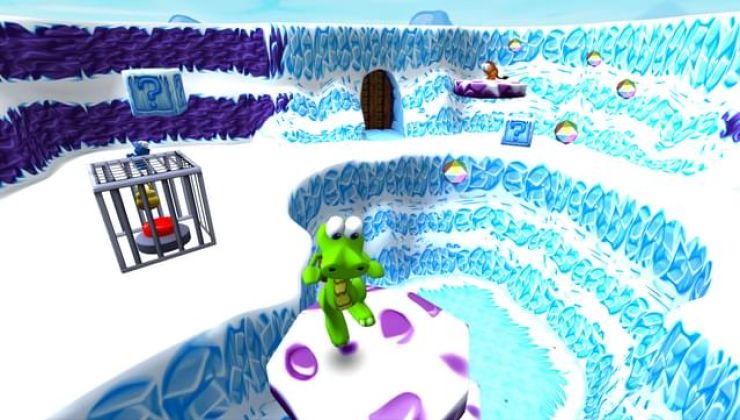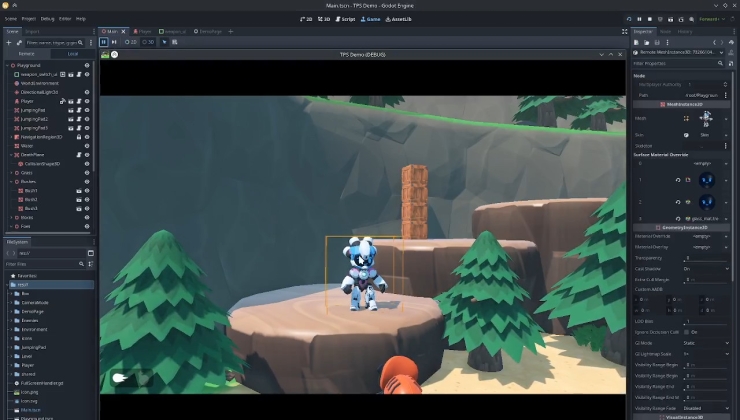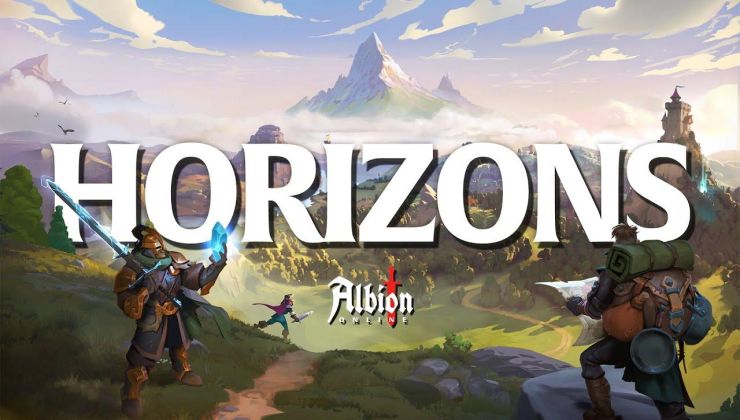Game store GOG has a new blog post up detailing how they're doing, and it seems like things are starting to go a bit better for them. Back in 2021, I reported on how in the CD PROJEKT financials, it showed that GOG was losing money, so it seems they may be starting to turn things around a little bit.
In their new post, they showed that for 2022 they have seen an 11% increase in active users across all of GOG services with an 18% increase in their overall user base. However, GOG Galaxy only "remained consistent", so it seems they aren't seeing much growth for their launcher. They're also reporting a net profit of $1.2M USD, noting they're losing around 4% due to suspending operations in Russia and Belarus.
Nothing close to how they were doing in 2020 though, which they attribute the spike that year to Cyberpunk 2077 and COVID-19 increasing sales due to people being at home more.
As for their market split they're seeing 53% from Europe, 37% from North America, 4% Asia, 4% Australia and New Zealand and 2% elsewhere.
The amount of games releasing on GOG has been increasing every year too, although it's nothing close to what Steam has, since GOG do a little more curation on what they accept (which is at times a little weird on what they deny). From 296 releases in 2018 up to 684 in 2022.
Quoting: denyasisQuoting: Eike"Access control" fits I guess, though what rights would that be that are managed? Copy protection is managing - literally - copy( )right...
In a way, same thing. Unauthorized use of the account leading to unauthorized "distribution". There's more DRM than straight copy protection, especially in a world where streaming content is becoming more prevalent. Steam client's DRM is account/password sharing protection. It's restricting your right to share your account with other people. Valve doesn't want you to do that. Neither does Netflix or Disney or any other digital distributor.
Well, Valve does explicitly allow and support sharing to some extend - except that you cannot play simultaneously. Of course, this is a restriction, yes. But I guess this needs to be in place to (copy) protect the DRMed games. If we could all just share credentials and play with the same account, copy/run protection wouldn't make sense anymore, right? So in effect, we both could not play a DRM'ed Steam game bought once simultaneously - but we could play a non-DRM'ed Steam game bought once simultaneously.
The perspective I took (it's not my own, I like using Steam) is like... You've already gamed in the Nineties. You got a game, you installed it, you played it. Nothing keeps you from copying it to somewhere else, and play it there, too, simultaneously if you like. You're not caring for "accounts", you don't need and you don't want an "account" to play a game. Because, why would you?!?
Quoting: EikeThe perspective I took (it's not my own, I like using Steam) is like... You've already gamed in the Nineties. You got a game, you installed it, you played it. Nothing keeps you from copying it to somewhere else, and play it there, too, simultaneously if you like. You're not caring for "accounts", you don't need and you don't want an "account" to play a game. Because, why would you?!?Oh, come on. Pitching a bit too strong there. I remember games from back then, and they did their best to stop you from copying them. They just didn't have modern tech for it. So they'd have popups within the game asking what the fifth word on page three of the little booklet that came with the game was or some dang thing--no answer, no more game. People would just photocopy the little manual, but they were sure trying and it was annoying.
Quoting: Purple Library GuyQuoting: EikeThe perspective I took (it's not my own, I like using Steam) is like... You've already gamed in the Nineties. You got a game, you installed it, you played it. Nothing keeps you from copying it to somewhere else, and play it there, too, simultaneously if you like. You're not caring for "accounts", you don't need and you don't want an "account" to play a game. Because, why would you?!?Oh, come on. Pitching a bit too strong there. I remember games from back then, and they did their best to stop you from copying them. They just didn't have modern tech for it. So they'd have popups within the game asking what the fifth word on page three of the little booklet that came with the game was or some dang thing--no answer, no more game. People would just photocopy the little manual, but they were sure trying and it was annoying.
Yeah, I thought about leaving out the nineties part. (I should have.) It was more about the idea you had of gaming back then: Get a game, install, play. Nobody had any accounts back then. If you take it from that view, not starting Steam but just the game feels all natural, not like "tricking" the system or anything alike.
Last edited by Eike on 12 May 2023 at 5:37 pm UTC
I've never had a stupid game that made me do any kind of challenge/response with booklet text, though I've heard of it. Until about 2008, the games I bought were all "buy CD/DVD, install, play". Then they started having activation, where you had to de-auth copies. Then a lot of games were forced on Steam (e.g. starting with "Call of Duty Modern Warfare 2" and boy, did I resent that).
Soon it became pointless to buy physical media for games, because they needed umpteen gigabytes of updates out of the box, since the media was pressed anyway. Often they had worse DRM than Steam, too, when sold that way (e.g. All of Denuvo turned on)
GoG fixes that. I download only the offline installer archives and then I have them. If/when more patches come out, I always have my original download in case the incremental update patches break it. (I was sure glad to have that recourse when I was playing Cyberpunk 2077). Later, you can rebase and download the current archives too of course.
Quoting: GroganI've never had a stupid game that made me do any kind of challenge/response with booklet text, though I've heard of it.
I think Monkey Island did that.
Quoting: EikeQuoting: GroganI've never had a stupid game that made me do any kind of challenge/response with booklet text, though I've heard of it.
I think Monkey Island did that.
Monkey Island 1 and 2 had fancy cardboard dials or wheels. Or at least the Amiga versions did. A bunch of early Sierra adventures had stuff you needed to find in the manual. And of course plenty of C64 games had something like a colour code grid on the cassette inlay card. Things like these were pretty common throughout the eighties and early nineties.
Quoting: tuubiMonkey Island 1 and 2 had fancy cardboard dials or wheels. Or at least the Amiga versions did. A bunch of early Sierra adventures had stuff you needed to find in the manual. And of course plenty of C64 games had something like a colour code grid on the cassette inlay card. Things like these were pretty common throughout the eighties and early nineties.
I had one game, cannot remember which one, that had some... brown-and-black maybe? booklet that was supposed to not by copyable with the photocopy devices of the same age. I always wondered if that was really true.
Quoting: EikeI had one game, cannot remember which one, that had some... brown-and-black maybe? booklet that was supposed to not by copyable with the photocopy devices of the same age. I always wondered if that was really true.Indy3?
Quoting: KlaasQuoting: EikeI had one game, cannot remember which one, that had some... brown-and-black maybe? booklet that was supposed to not by copyable with the photocopy devices of the same age. I always wondered if that was really true.Indy3?
I found SimCity...
https://www.vintagecomputing.com/wp-content/images/copyprotection/simcity_large.jpg
Last edited by Eike on 10 May 2023 at 6:19 pm UTC
Quoting: EikeI found SimCity...I hate to say that that was my second guess, but it really was. I had the Atari ST version.







See more from me